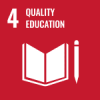Laws and regulations related to national education need to be revised to respond to educational challenges in the modern era.
This was stated by the Chairman of Commission X of the Indonesian House of Representatives, Syaiful Huda, in the National Online Seminar of the UGM Board of Professors entitled “Critical Study of the National Education Law” held on Thursday (24/6).
“The revision of the law is more relevant because this law is already 16 years old. Of course, we cannot find answers to various challenges in Law Number 20 of 2003 concerning the National Education System,” he said.
In this seminar, Syaiful presented several notes that became the basis for the revision of the law which included philosophical, juridical, and sociological aspects.
He explained on the philosophical aspect the substance of the revision of the National Education System Law explicitly and implicitly refers to and is in line with the state’s vision as stated in the opening of the fourth paragraph and Article 31 and Article 32 of the 1945 Constitution of the Republic of Indonesia. Hence, educational development is directed and sustainable.
According to him, the substance of character education should emphasize the philosophy of Pancasila and be based on religious values, cultural traditions of the archipelago, historical aspects of Indonesian education, and thoughts of educational figures, religious leaders, and national culturalists. The substance from the philosophical aspect needs to be a shared commitment in the revision of the National Education System Law.
“Indonesia is a big country that has a legacy and noble values to build a civilization of its own and the world. Therefore, no matter how strong the need to respond to accelerated social changes, it must not leave the cultural roots of the nation at all,” he explained.
On the juridical aspect, he explained the need for synchronization with several related laws, such as Law no. 12/2012 on Higher Education and Law no. 11/2019 concerning the National System of Science and Technology.
“The problem with the implementation of the National Education System Law and other education laws is that the regulations regarding the implementation are not in line with the substance that is attached to the main law,” he added.
Meanwhile, on the sociological aspect, the national education system must reaffirm the role of the Three Education Centers, namely parents or families, schools, and communities, as components in the education roadmap as these three are important components as a center for scientific development, character building, and children’s personality.
In addition, the education system must be able to be implemented in areas that have specific characteristics such as urban, rural, mountainous, river, and island areas, and pay attention to the unequal distribution of infrastructure and information technology.
On the same occasion, the head of the UGM DGB Education Bill Discussion Team, Prof. Sri Hartati said that the education system should allow students to balance between academic needs, skills to enter the workforce, and prepare a generation that can think critically, analytically, creatively, and innovatively.
In addition, the national education system should guarantee equal access to education for all citizens and ensure the quality of education evenly throughout Indonesia.
“For this reason, it needs to be studied in-depth, to adjust the needs in facing challenges,” she said.
Source: https://ugm.ac.id/id/berita/21304-perlu-revisi-undang-undang-pendidikan-nasional



